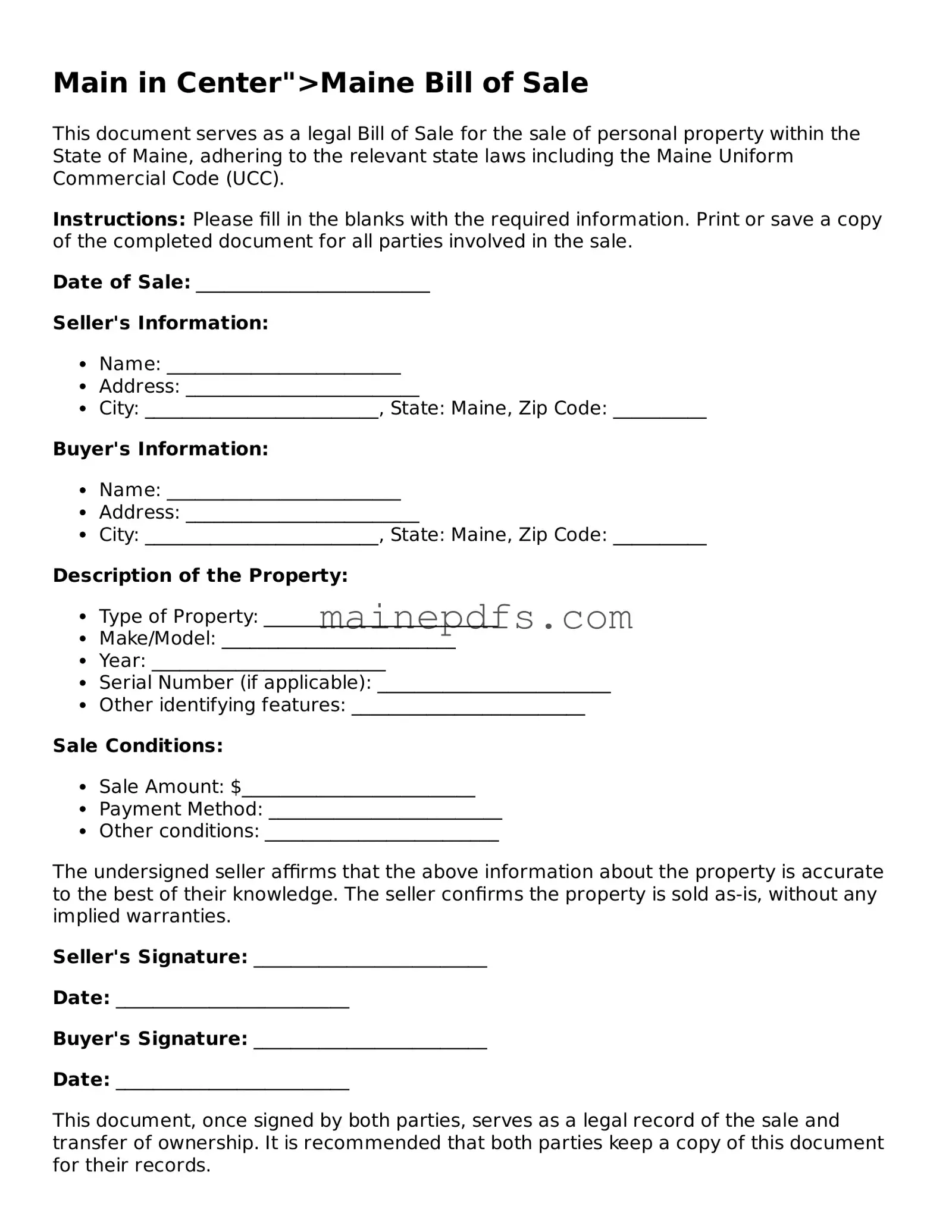A Bill of Sale form in Maine, like in many states, is a legal document that verifies the transfer of ownership of an item from one party to another. It's common in transactions involving cars, boats, motorcycles, and other valuable personal property. Similarly, a Vehicle Title serves a parallel purpose, specifically for automobiles. It's an official document issued by the state that formally declares the legal owner of the vehicle. While both documents are used in the context of ownership, the title is more about legal status, whereas the Bill of Sale is a transactional record.
Another document akin to the Maine Bill of Sale is the Deed of Sale, frequently used in real estate. This document is an agreement that conveys the rights of a property from the seller to the buyer, mirroring the Bill of Sale's function of transferring ownership, but within the realm of real estate. It is a crucial piece in property transactions, ensuring the buyer's new ownership is legally recognized.
The Warranty Deed shares similarities with Maine's Bill of Sale too, in that it offers a higher level of assurance to the purchaser. This deed not only transfers ownership of property but also guarantees that the seller holds a clear title to the property. It's akin to a Bill of Sale that includes warranties, offering peace of mind and legal protection to the buyer regarding the status of the property's title.
In the world of business transactions, the Asset Purchase Agreement (APA) parallels the Bill of Sale. This comprehensive document outlines the sale and purchase of a business's assets, rather than its stock. The APA specifies which assets are being bought or sold, similar to how a Bill of Sale lists the items changing hands, but it's used for more complex transactions involving entire businesses or significant parts thereof.
The Sales Receipt is another document that echoes the purpose of the Maine Bill of Sale. It typically acknowledges that payment has been made and received, serving as proof of transaction for both the buyer and the seller. While less formal and detailed than a Bill of Sale, a sales receipt still provides important transactional evidence and is often used for smaller, everyday purchases.
Loan Agreements, while primarily focused on the terms and conditions of a loan, bear some resemblance to Bills of Sale when it comes to transactions involving financed purchases. In cases where goods are bought with borrowed money, the loan agreement not only outlines the terms of the loan but also, indirectly, confirms the transfer of goods as collateral, linking it back to the concept of a Bill of Sale but under the umbrella of financing.
Gift Deeds play a somewhat analogous role to the Maine Bill of Sale, though they are used when an item is given without any exchange of payment. They are important for legal record-keeping, ensuring a clear transfer of ownership from the giver to the receiver. Both documents serve to formalize the change of ownership, although the context of a gift is distinct from a sale.
Quitclaim Deeds, often used in personal situations like transferring property between family members, have a similarity to the Bill of sale in their function of transferring rights. However, Quitclaim Deeds come with no guarantees about the grantor's interest in the property or clear title, making them less secure than a traditional sale but still a means of documenting a transfer of ownership.
Lastly, the Receipt of Payment, though a simple acknowledgment compared to the Bill of Sale, serves as proof that a transaction has occurred. It signifies the completion of a payment from buyer to seller, similar to how a Bill of Sale confirms the change of ownership. Even though it lacks the detail found in a Bill of Sale, it's crucial for record-keeping and the validation of transactions.
Each of these documents, while tailored to specific types of transactions and possessing unique features, shares the common thread of documenting the transfer of ownership or rights. They play crucial roles in their respective areas, ensuring clarity, legality, and peace of mind for all parties involved.

